When it comes to science and nutrition, should I be doing my own research? On Instagram @AndreaHardyRD, I talk all about the cognitive distortions I see when people do their own research.
I say this lovingly, to all my sci commers, because I know you can take it. (#scicommunity Thursday)
⠀
I read this hilarious article in Forbes called ‘You Must Not ‘Do Your Own Research’ [link in profile & on stories] when it comes to science. It was astute, well written, and accurate. ⠀
⠀
But it was written for science communicators to validate our feelings. The average at-home researcher? Well I’m sure they’re offended and ready to dig their heels in deeper.⠀
⠀
If my #scicomm answer to misinformation is ‘you should just listen to me’, I haven’t done my job. ⠀
⠀
Science, research & self-awareness are teachable skills. Recognizing our limitations and where we can go for information is teachable.⠀
⠀
SO. I took this opportunity to highlight some of the cognitive distortions, ‘The Office style’ I see when people do their own research so you can reflect if you’ve been there (trust me, we all have – we’re human.)⠀
⠀
RESEARCH REALITY: ⠀
It is scientists & health agencies jobs to critically appraise ALL the research that exists on the topic before making recommendations. If you found a study that highlights GMO’s cause infertility – so too have the experts. And then they’ve taken that study, assessed it for limitations, weighed it amongst the rest, and frankly in this case (Seralini, you dog, you), thrown it out – because it is scientifically unfounded.⠀
⠀
Yet – that ONE scary study ended up plastered all over the internet and you came across it when you started looking into the topic and did many really good things: ⠀
⠀
✅You saw the blogger cited research ⠀
✅You may have even clicked the reference (yep it’s there). ⠀
✅Maybe, you even read the study (WOAH scary stuff – how are people not talking about this?)⠀
⠀
Seems scientific right?⠀
⠀
It’s not. But it’s tough to discern.⠀
⠀
As I’ve said in a previous post – you can find evidence for ANYTHING online. What’s worse – the website can appear extremely credible. But what does the consensus and regulatory bodies say? That’s going to be your best bet when doing your own research for a balanced, well researched position on the point. There is after all, experts for that.

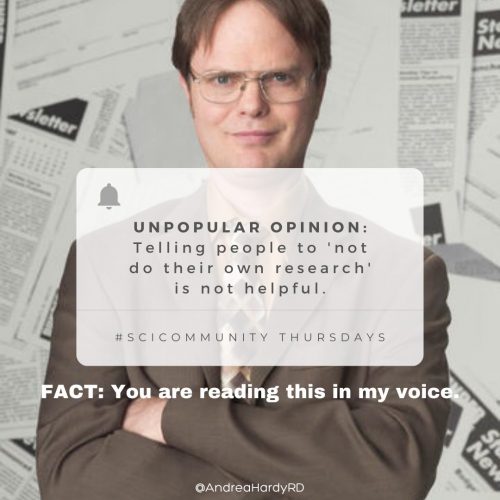
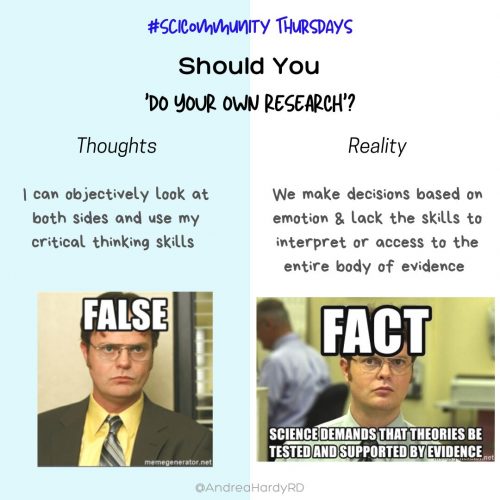
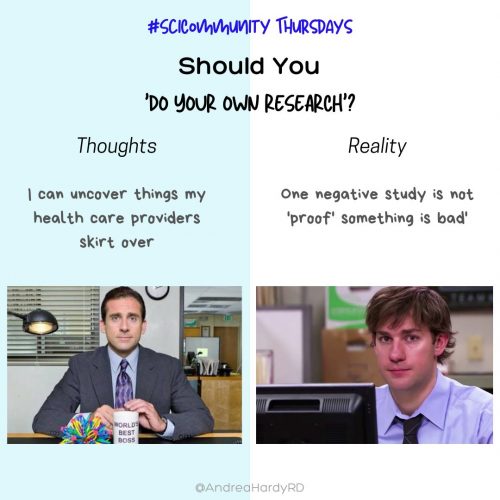
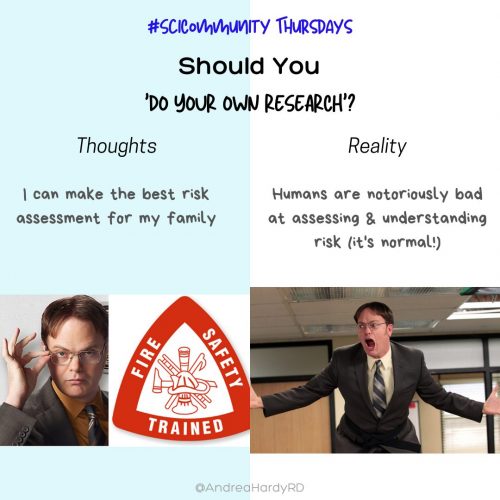
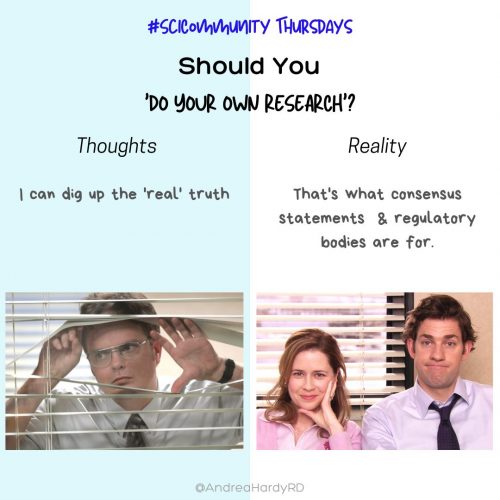
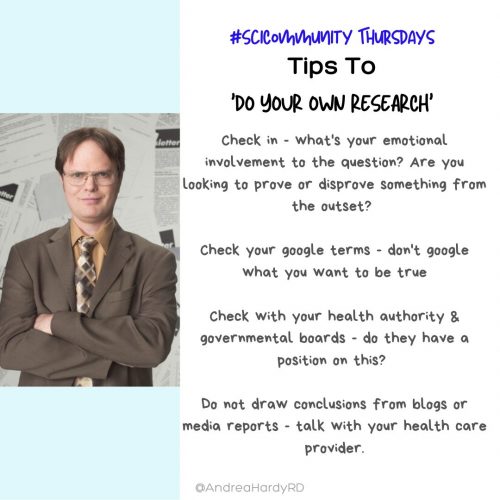

Recent Comments